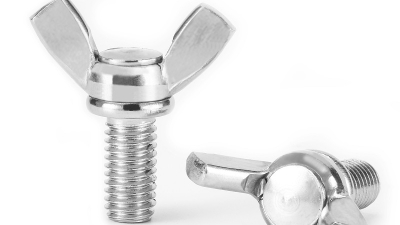
- wzqb@qb-inds.com
- Mon - Sat at 7:00AM to 6:00PM
10 Essential Tips for Choosing the Right Torx Screw for Your Projects
Table of Contents
- Understanding the Different Types of Torx Screws and Their Uses
- Key Factors to Consider When Selecting Torx Screw Sizes for Your Projects
- The Importance of Material Compatibility: Choosing the Right Torx Screw
- How Torx Screw Design Influences Performance and Durability
- Tips for Finding High-Quality Torx Screws for Your Specific Applications
- Common Mistakes to Avoid When Choosing Torx Screws for Your Projects
- Maximizing Convenience and Durability: A Deep Dive into Stainless Steel DIN316 AF Wing Bolts and Screws
- FAQS
- Conclusion
- Related Posts
In today’s super fast-paced manufacturing world, choosing the right hardware parts isn’t just a detail—it's actually a big deal when it comes to keeping product quality high and operations running smoothly. One piece of hardware that’s been catching a lot of attention lately is the Torx screw. Honestly, it's pretty cool because its unique design helps prevent slipping (you know, cam-out) and makes sure torque gets transferred more efficiently. According to the 2022 Fastener Industry Report, demand for specialty screws like Torx is expected to grow about 5% each year. This spike is mainly driven by advancements in sectors like automotive and aerospace, where precision really matters. Here at Wenzhou Qiangbang Industrial Co., Ltd., founded all the way back in 2003, we’re really committed to innovating and producing top-notch fasteners that meet the strict standards of high-end manufacturing. With our integrated approach—covering R&D, manufacturing, sales, and customer support—we aim to help manufacturers choose the perfect Torx screw for their needs. Our goal? To support the durability and reliability of their products in every project they take on.
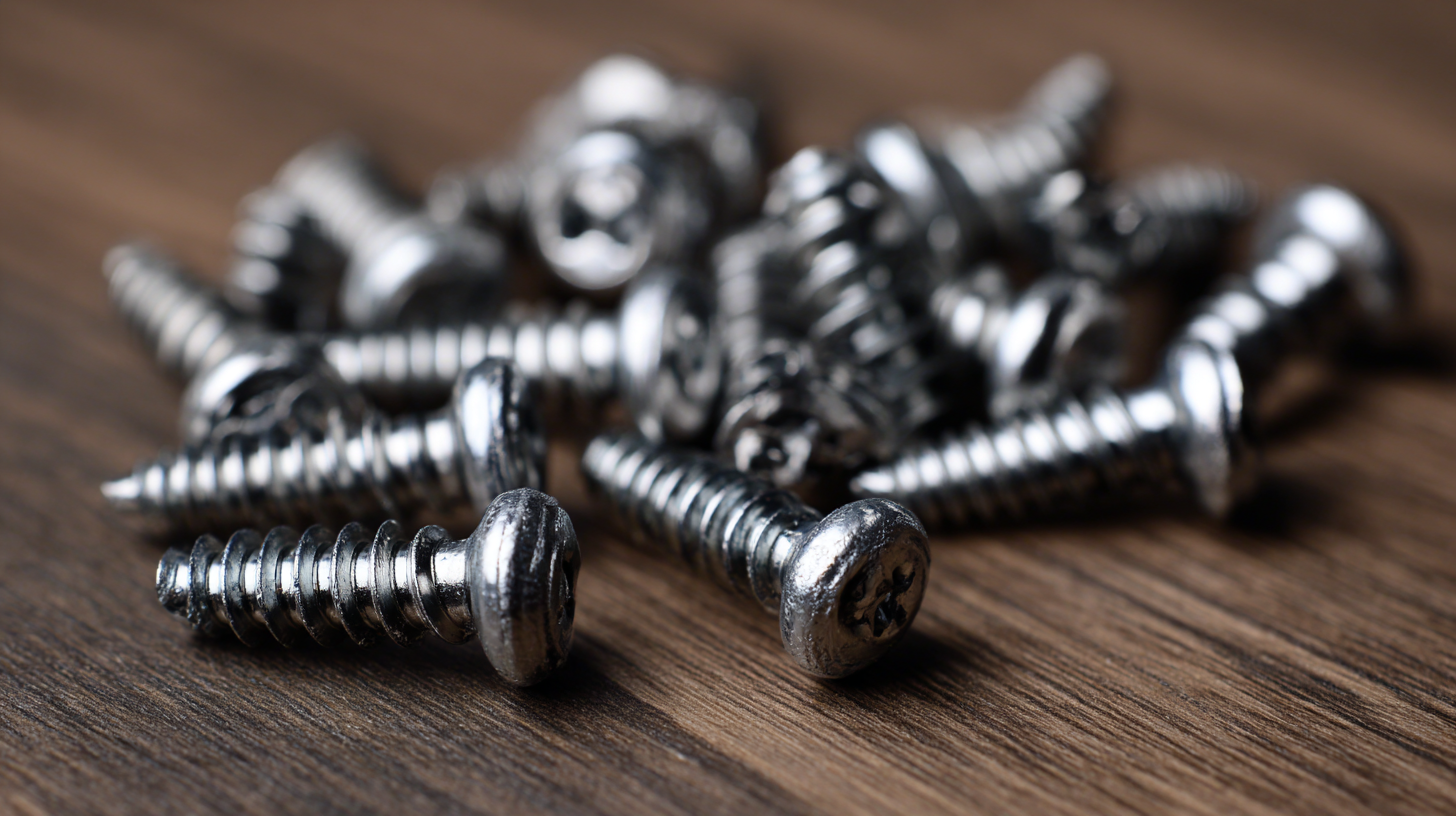
Understanding the Different Types of Torx Screws and Their Uses
When you're choosing the right Torx screw for your project, it’s really helpful to understand the different types out there and what they’re used for. Torx screws, with their star-shaped pattern, actually give you a better grip and more torque — which is why they’re great for situations where precision really matters. You see them all over — in cars, electronics, even putting together furniture. Each type is made for a specific job, from tiny sizes perfect for delicate devices to bigger ones for sturdier stuff.
Now, there are a few varieties too — like the regular Torx, tamper-proof, and security screws. The standard ones are pretty much your go-to for everyday tasks. The tamper-proof or security screws, on the other hand, add an extra layer of security and stop folks from messing around with things they shouldn’t. Picking the right screw for your project is really about matching the type to what you’re working on — that way, everything holds up and works smoothly.
And hey, if you’re using a good quality multi-bit screwdriver, it makes switching between different screws way easier. It’s a small thing, but it really helps keep your workflow smooth. Honestly, understanding these little differences can save you a lot of hassle and make your assembly work way more efficient.
Key Factors to Consider When Selecting Torx Screw Sizes for Your Projects
When you're starting a project that involves Torx screws, it's really helpful to understand how to pick the right sizes—trust me, it can make a big difference in how things turn out. First off, think about the material you're working with. Different materials often need specific screw sizes to work best. For instance, harder stuff usually does better with larger Torx screws because they can grip better and stay stable. Also, make sure the screw size matches the thickness of the material so everything stays secure.
Another thing to keep in mind is the torque you need for your project. The size of the Torx screw matters a lot here—if it’s too small, it might strip easily, and if it’s too big, it could be overkill. When choosing, check out the head size too, since that impacts how easy it is to install. A bigger head can help spread the pressure more evenly, which means less risk of the screw failing under stress.
And don’t forget about where you’re working. If space is tight or cramped, smaller Torx screws might be your best bet—they can fit into those tricky spots without sacrificing strength. It’s always a good idea to have a few different sizes on hand, just so you’re ready for anything. That way, your work stays smooth, reliable, and less frustrating overall.
The Importance of Material Compatibility: Choosing the Right Torx Screw
When you're trying to pick the right Torx screw for your project, one thing you really don’t want to overlook is material compatibility. It’s a pretty big deal because it can seriously affect how well your assembly holds up over time. The materials you choose for both the screw and whatever you're attaching can influence things like strength, durability, and how resistant it is to rust and wear. For example, stainless steel Torx screws are great if you need something that won’t corrode easily—perfect for outdoor setups—while carbon steel screws might do the trick better for indoor projects where rust isn’t much of an issue. Knowing what your project demands can really help you pick the right screws to boost performance and reliability.
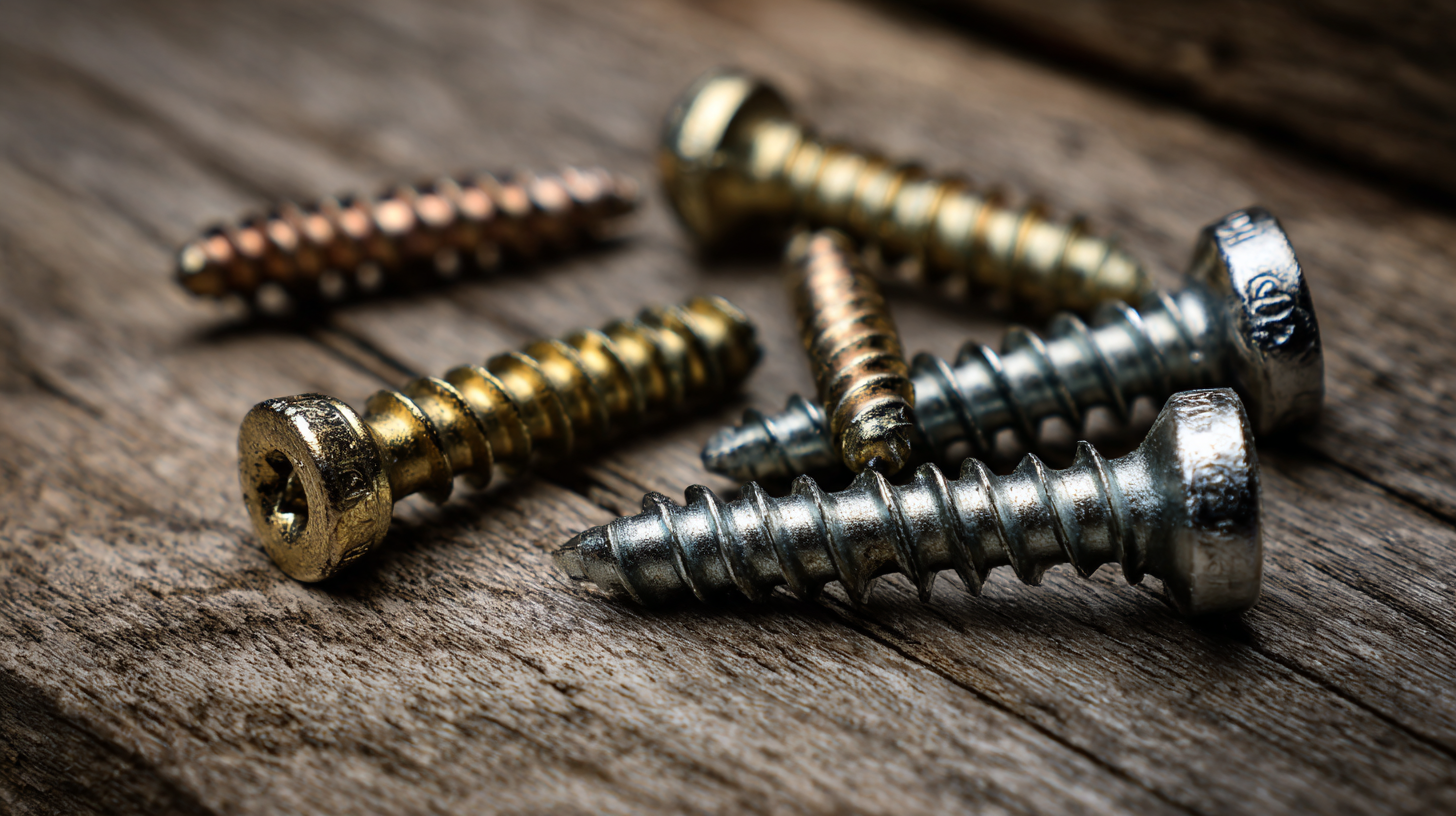
Here at Wenzhou Qiangbang Industrial Co., Ltd., we get how important material compatibility is in manufacturing. We’ve been around since 2003, focusing on researching, developing, producing, and selling top-quality parts—including a variety of Torx screws designed to handle different needs. We’re committed to blending innovation with manufacturing, so our products not only meet but often even go beyond industry standards. When you choose the right fasteners and materials for what you’re working on, you’re setting yourself up for success. We truly believe that paying attention to even the smallest details makes all the difference in high-end manufacturing projects.
How Torx Screw Design Influences Performance and Durability
When you're choosing the right Torx screw for your project, it's pretty important to get a handle on how their design affects both performance and durability. You see, the six-point star shape of Torx screws isn’t just for looks—it actually helps transfer more torque than your average screw, which means you're less likely to strip them. I remember reading somewhere, like in a report from the National Institute of Standards and Technology, that Torx screws can handle up to 25% more torque compared to Phillips or slotted screws. That extra strength? Super handy, especially in high-stress jobs like automotive assembly, where reliability really matters.
On top of that, the materials and coatings used in making these screws are huge when it comes to how long they last. For example, screws made from high-strength steel and given a good corrosion-resistant coating tend to hold up way better in tough environments. The folks at the National Association of Corrosion Engineers even mentioned that properly coated screws can withstand about 50% more exposure to rust and corrosion than those without coatings. So yeah, investing in quality Torx screws isn't just about performance—it’s also about making sure they stick around and do the job long-term. Keep these factors in mind next time you're picking out screws, and you'll be way better off.
Tips for Finding High-Quality Torx Screws for Your Specific Applications
Choosing the right Torx screws for your project isn’t just about picking any random one. The quality really makes a difference and can make or break your whole setup. First off, take a good look at what the screws are made of. Top-quality Torx screws are usually crafted from tough, durable materials—like stainless steel, which resists rust and corrosion, or high-carbon steel that’s been treated with protective coatings to boost strength and last longer. Make sure they’re suitable for where you plan to use them—whether that’s indoors, outdoors, or in harsher environments, you wanna pick something that can handle it.
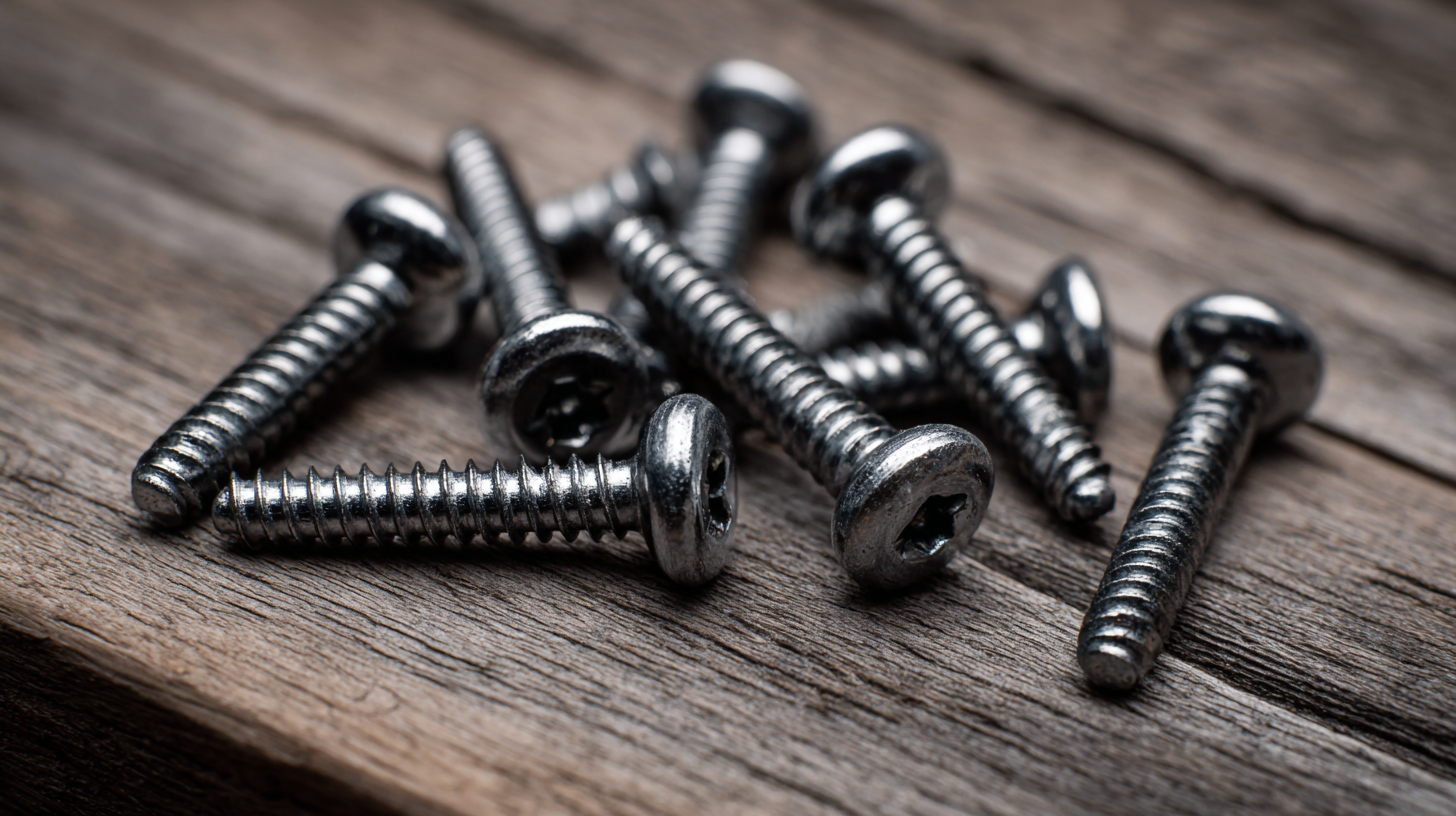
Also, don’t forget to pay attention to the size and thread type. Using the right size is crucial—going too big or too small can mess with the stability of your project. As for the thread pattern, fine threads tend to be better if you’re screwing into softer materials, while coarse threads grip better in tougher, harder surfaces. Once you understand these key points about Torx screws and match them up with your specific needs, you’ll feel much more confident in your choice.
Trust me, picking good quality screws means your project will hold up much better over time—so it’s worth taking the time to get it right.
Common Mistakes to Avoid When Choosing Torx Screws for Your Projects
When you're trying to pick out the right Torx screws for your project, it's pretty easy to make mistakes—trust me, I've been there. Avoiding some of these common slip-ups can actually save you quite a bit of time, money, and a whole lot of frustration. One big mistake folks often make is not paying enough attention to the screw size and type. Using the wrong size can cause stripped heads or not hold things together as strongly as you need it to. Always double-check the manufacturer’s guidelines and specs—it's worth taking a moment to ensure you're grabbing screws that are actually suited for your materials and application.
Another thing to watch out for is ignoring what the screws are actually made of. Like, using regular steel screws in a place where there's lots of moisture or exposure to the elements is probably not the best idea. Those guys can rust or fail way sooner than you'd like. It’s smarter to go for stainless steel or screws with special coatings if you're working outside or in humid environments. Oh, and don’t forget about the drive style! Torx screws, with their star-shaped design, give you better grip and are less likely to strip than your standard Phillips or flat-head screws. Getting a good handle on these little details can seriously improve the quality and lifespan of your projects.
So yeah, a little extra attention to these things can make a huge difference—trust me on that!
Torx Screw Usage in Various Projects
Maximizing Convenience and Durability: A Deep Dive into Stainless Steel DIN316 AF Wing Bolts and Screws
In the realm of fasteners, convenience and durability are paramount, particularly when it comes to the use of stainless steel products. The DIN 316 AF Wing Bolts and Screws exemplify these qualities through their thoughtful design and construction. Characterized by their elongated 'wings,' these fasteners allow for simple hand operation, which can be particularly advantageous in applications requiring frequent adjustments. According to industry standards, the ease of use provided by wing bolts can significantly reduce downtime during assembly and maintenance projects.
These wing bolts can be effectively paired with Wing Nuts to create secure fastening solutions that can be effortlessly adjusted from multiple positions. This feature is crucial in environments where rapid changes are common, such as in marine applications or industrial settings. A recent market report by Allied Market Research estimates that the demand for versatile fasteners, including wing bolts, is expected to grow at a CAGR of 4.2% through 2027, driven by the rising need for efficient assembly in diverse industries like construction and automotive.
Moreover, stainless steel’s inherent properties ensure that these fasteners resist corrosion and provide long-lasting performance even in harsh conditions. The durability of DIN 316 grade stainless steel, known for its excellent resistance to pitting and crevice corrosion, makes these wing bolts ideal for applications exposed to moisture and saline environments. By maximizing convenience through their design and maintaining exceptional durability, stainless steel DIN 316 AF Wing Bolts and Screws stand out as a reliable choice for modern fastening solutions.
FAQS
: Key factors include the material you're working with, torque requirements, head size, and accessibility for installation. Matching screw size to material thickness and ensuring it fits well are crucial for optimal performance.
Material compatibility affects the performance and longevity of the assembly, influencing strength, corrosion resistance, and wear. For example, stainless steel screws are ideal for outdoor use, while carbon steel is better for indoor applications.
The torque requirement determines how much tightness is needed; the screw size influences the amount of torque it can handle without stripping. Larger screws generally provide better grip for achieving desired torque.
The six-point star design of Torx screws allows for greater torque transfer, reducing the chances of stripping. This design can provide up to 25% more torque than traditional screws, making them suitable for high-stress applications.
The materials used, such as high-strength steel and corrosion-resistant coatings, significantly enhance the longevity of screws. Properly coated screws can endure up to 50% more exposure to corrosive elements.
Yes, maintaining a selection of different sizes is advisable to accommodate various project requirements, especially when working in confined spaces or situations where specific screw sizes are necessary for optimal performance.
Torx screws are particularly favorable in high-stress applications, such as automotive assembly, where reliability and the ability to withstand high torque levels are essential.
Selecting the appropriate Torx screw based on material compatibility, size, and design helps ensure a secure fit and reliable assembly, significantly enhancing the performance and durability of the project.
Stainless steel Torx screws offer excellent anti-corrosive properties, making them ideal for outdoor applications and environments where rust resistance is a priority.
Conclusion
So, when you're picking out the right Torx screw for your project, it’s really important to get a good grasp of the different types out there and what they’re best used for. This blog will walk you through some essentials—things like how to choose the right screw size, why matching materials is a big deal, and how the design of the Torx screw impacts its performance and lifespan. We’ll also share tips on how to find high-quality screws that fit your specific needs and point out some common mistakes to watch out for along the way.
At Wenzhou Qiangbang Industrial Co., Ltd., we’re all about pushing the boundaries in high-end manufacturing. We combine research, production, sales, and service into a seamless approach because we genuinely care about helping our customers pick the best screws for their projects. Our goal is to make sure those screws deliver top-notch performance and last as long as you need.
Basically, whether you're a DIY enthusiast or a seasoned pro, we’ve got your back with expert advice and quality products that won’t let you down.
Related Posts
-

Discover the Best Torx Screws Crafted by Chinas Leading Manufacturing Factory
-

China Manufacturing Thrives Amidst US China Tariff Challenges with Best Grub Screw
-

The Future of Fastening Solutions with Best Hex Screw Innovations
-

Discover the Secrets to Sourcing High Quality Screws for Your Global Projects
-
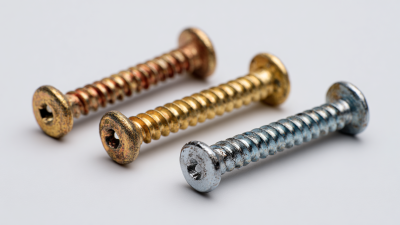
Addressing Common Issues Faced with Flat Head Screws in Global Procurement
-

Discover the Top Health Benefits of the Best Nuts for Your Daily Diet

